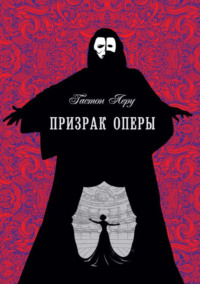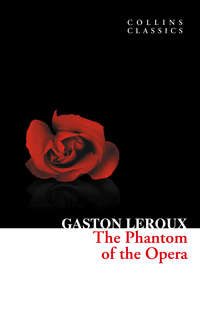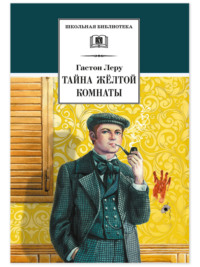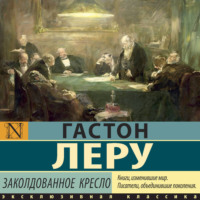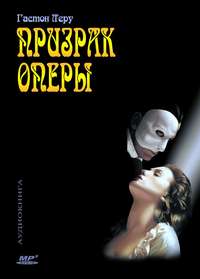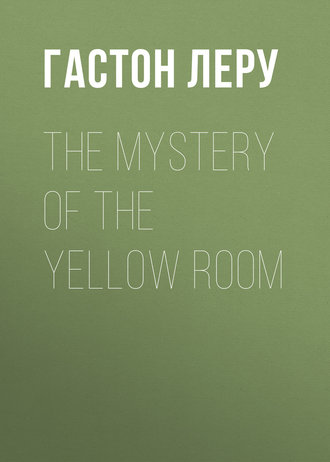 полная версия
полная версияThe Mystery of the Yellow Room
I return to Monsieur Stangerson. When he bought the estate, fifteen years before the tragedy with which we are engaged occurred, the Chateau du Glandier had for a long time been unoccupied. Another old chateau in the neighbourhood, built in the fourteenth century by Jean de Belmont, was also abandoned, so that that part of the country was very little inhabited. Some small houses on the side of the road leading to Corbeil, an inn, called the “Auberge du Donjon,” which offered passing hospitality to waggoners; these were about all to represent civilisation in this out-of-the-way part of the country, but a few leagues from the capital.
But this deserted condition of the place had been the determining reason for the choice made by Monsieur Stangerson and his daughter. Monsieur Stangerson was already celebrated. He had returned from America, where his works had made a great stir. The book which he had published at Philadelphia, on the “Dissociation of Matter by Electric Action,” had aroused opposition throughout the whole scientific world. Monsieur Stangerson was a Frenchman, but of American origin. Important matters relating to a legacy had kept him for several years in the United States, where he had continued the work begun by him in France, whither he had returned in possession of a large fortune. This fortune was a great boon to him; for, though he might have made millions of dollars by exploiting two or three of his chemical discoveries relative to new processes of dyeing, it was always repugnant to him to use for his own private gain the wonderful gift of invention he had received from nature. He considered he owed it to mankind, and all that his genius brought into the world went, by this philosophical view of his duty, into the public lap.
If he did not try to conceal his satisfaction at coming into possession of this fortune, which enabled him to give himself up to his passion for pure science, he had equally to rejoice, it seemed to him, for another cause. Mademoiselle Stangerson was, at the time when her father returned from America and bought the Glandier estate, twenty years of age. She was exceedingly pretty, having at once the Parisian grace of her mother, who had died in giving her birth, and all the splendour, all the riches of the young American blood of her parental grandfather, William Stangerson. A citizen of Philadelphia, William Stangerson had been obliged to become naturalised in obedience to family exigencies at the time of his marriage with a French lady, she who was to be the mother of the illustrious Stangerson. In that way the professor’s French nationality is accounted for.
Twenty years of age, a charming blonde, with blue eyes, milk-white complexion, and radiant with divine health, Mathilde Stangerson was one of the most beautiful marriageable girls in either the old or the new world. It was her father’s duty, in spite of the inevitable pain which a separation from her would cause him, to think of her marriage; and he was fully prepared for it. Nevertheless, he buried himself and his child at the Glandier at the moment when his friends were expecting him to bring her out into society. Some of them expressed their astonishment, and to their questions he answered: “It is my daughter’s wish. I can refuse her nothing. She has chosen the Glandier.”
Interrogated in her turn, the young girl replied calmly: “Where could we work better than in this solitude?” For Mademoiselle Stangerson had already begun to collaborate with her father in his work. It could not at the time be imagined that her passion for science would lead her so far as to refuse all the suitors who presented themselves to her for over fifteen years. So secluded was the life led by the two, father and daughter, that they showed themselves only at a few official receptions and, at certain times in the year, in two or three friendly drawing-rooms, where the fame of the professor and the beauty of Mathilde made a sensation. The young girl’s extreme reserve did not at first discourage suitors; but at the end of a few years, they tired of their quest.
One alone persisted with tender tenacity and deserved the name of “eternal fiance,” a name he accepted with melancholy resignation; that was Monsieur Robert Darzac. Mademoiselle Stangerson was now no longer young, and it seemed that, having found no reason for marrying at five-and-thirty, she would never find one. But such an argument evidently found no acceptance with Monsieur Robert Darzac. He continued to pay his court—if the delicate and tender attention with which he ceaselessly surrounded this woman of five-and-thirty could be called courtship—in face of her declared intention never to marry.
Suddenly, some weeks before the events with which we are occupied, a report—to which nobody attached any importance, so incredible did it sound—was spread about Paris, that Mademoiselle Stangerson had at last consented to “crown” the inextinguishable flame of Monsieur Robert Darzac! It needed that Monsieur Robert Darzac himself should not deny this matrimonial rumour to give it an appearance of truth, so unlikely did it seem to be well founded. One day, however, Monsieur Stangerson, as he was leaving the Academy of Science, announced that the marriage of his daughter and Monsieur Robert Darzac would be celebrated in the privacy of the Chateau du Glandier, as soon as he and his daughter had put the finishing touches to their report summing up their labours on the “Dissociation of Matter.” The new household would install itself in the Glandier, and the son-in-law would lend his assistance in the work to which the father and daughter had dedicated their lives.
The scientific world had barely had time to recover from the effect of this news, when it learned of the attempted assassination of Mademoiselle under the extraordinary conditions which we have detailed and which our visit to the chateau was to enable us to ascertain with yet greater precision. I have not hesitated to furnish the reader with all these retrospective details, known to me through my business relations with Monsieur Robert Darzac. On crossing the threshold of “The Yellow Room” he was as well posted as I was.
CHAPTER V. In Which Joseph Rouletabille Makes a Remark to Monsieur Robert Darzac Which Produces Its Little Effect
Rouletabille and I had been walking for several minutes, by the side of a long wall bounding the vast property of Monsieur Stangerson and had already come within sight of the entrance gate, when our attention was drawn to an individual who, half bent to the ground, seemed to be so completely absorbed in what he was doing as not to have seen us coming towards him. At one time he stooped so low as almost to touch the ground; at another he drew himself up and attentively examined the wall; then he looked into the palm of one of his hands, and walked away with rapid strides. Finally he set off running, still looking into the palm of his hand. Rouletabille had brought me to a standstill by a gesture.
“Hush! Frederic Larsan is at work! Don’t let us disturb him!”
Rouletabille had a great admiration for the celebrated detective. I had never before seen him, but I knew him well by reputation. At that time, before Rouletabille had given proof of his unique talent, Larsan was reputed as the most skilful unraveller of the most mysterious and complicated crimes. His reputation was world-wide, and the police of London, and even of America, often called him in to their aid when their own national inspectors and detectives found themselves at the end of their wits and resources.
No one was astonished, then, that the head of the Surete had, at the outset of the mystery of “The Yellow Room”, telegraphed his precious subordinate to London, where he had been sent on a big case of stolen securities, to return with all haste. Frederic who, at the Surete, was called the “great Frederic,” had made all speed, doubtless knowing by experience that, if he was interrupted in what he was doing, it was because his services were urgently needed in another direction; so, as Rouletabille said, he was that morning already “at work.” We soon found out in what it consisted.
What he was continually looking at in the palm of his right hand was nothing but his watch, the minute hand of which he appeared to be noting intently. Then he turned back still running, stopping only when he reached the park gate, where he again consulted his watch and then put it away in his pocket, shrugging his shoulders with a gesture of discouragement. He pushed open the park gate, reclosed and locked it, raised his head and, through the bars, perceived us. Rouletabille rushed after him, and I followed. Frederic Larsan waited for us.
“Monsieur Fred,” said Rouletabille, raising his hat and showing the profound respect, based on admiration, which the young reporter felt for the celebrated detective, “can you tell me whether Monsieur Robert Darzac is at the chateau at this moment? Here is one of his friends, of the Paris Bar, who desires to speak with him.”
“I really don’t know, Monsieur Rouletabille,” replied Fred, shaking hands with my friend, whom he had several times met in the course of his difficult investigations. “I have not seen him.”
“The concierges will be able to inform us no doubt?” said Rouletabille, pointing to the lodge the door and windows of which were close shut.
“The concierges will not be able to give you any information, Monsieur Rouletabille.”
“Why not?”
“Because they were arrested half an hour ago.”
“Arrested!” cried Rouletabille; “then they are the murderers!”
Frederic Larsan shrugged his shoulders.
“When you can’t arrest the real murderer,” he said with an air of supreme irony, “you can always indulge in the luxury of discovering accomplices.”
“Did you have them arrested, Monsieur Fred?”
“Not I!—I haven’t had them arrested. In the first place, I am pretty sure that they have not had anything to do with the affair, and then because—”
“Because of what?” asked Rouletabille eagerly.
“Because of nothing,” said Larsan, shaking his head.
“Because there were no accomplices!” said Rouletabille.
“Aha!—you have an idea, then, about this matter?” said Larsan, looking at Rouletabille intently, “yet you have seen nothing, young man—you have not yet gained admission here!”
“I shall get admission.”
“I doubt it. The orders are strict.”
“I shall gain admission, if you let me see Monsieur Robert Darzac. Do that for me. You know we are old friends. I beg of you, Monsieur Fred. Do you remember the article I wrote about you on the gold bar case?”
The face of Rouletabille at the moment was really funny to look at. It showed such an irresistible desire to cross the threshold beyond which some prodigious mystery had occurred; it appealed with so much eloquence, not only of the mouth and eyes, but with all its features, that I could not refrain from bursting into laughter. Frederic Larsan, no more than myself, could retain his gravity. Meanwhile, standing on the other side of the gate, he calmly put the key in his pocket. I closely scrutinised him.
He might be about fifty years of age. He had a fine head, his hair turning grey; a colourless complexion, and a firm profile. His forehead was prominent, his chin and cheeks clean shaven. His upper lip, without moustache, was finely chiselled. His eyes were rather small and round, with a look in them that was at once searching and disquieting. He was of middle height and well built, with a general bearing elegant and gentlemanly. There was nothing about him of the vulgar policeman. In his way, he was an artist, and one felt that he had a high opinion of himself. The sceptical tone of his conversation was that of a man who had been taught by experience. His strange profession had brought him into contact with so many crimes and villanies that it would have been remarkable if his nature had not been a little hardened.
Larsan turned his head at the sound of a vehicle which had come from the chateau and reached the gate behind him. We recognised the cab which had conveyed the examining magistrate and his Registrar from the station at Epinay.
“Ah!” said Frederic Larsan, “if you want to speak with Monsieur Robert Darzac, he is here.”
The cab was already at the park gate and Robert Darzac was begging Frederic Larsan to open it for him, explaining that he was pressed for time to catch the next train leaving Epinay for Paris. Then he recognised me. While Larsan was unlocking the gate, Monsieur Darzac inquired what had brought me to the Glandier at such a tragic moment. I noticed that he was frightfully pale, and that his face was lined as if from the effects of some terrible suffering.
“Is Mademoiselle getting better?” I immediately asked.
“Yes,” he said. “She will be saved perhaps. She must be saved!”
He did not add “or it will be my death”; but I felt that the phrase trembled on his pale lips.
Rouletabille intervened:
“You are in a hurry, Monsieur; but I must speak with you. I have something of the greatest importance to tell you.”
Frederic Larsan interrupted:
“May I leave you?” he asked of Robert Darzac. “Have you a key, or do you wish me to give you this one.”
“Thank you. I have a key and will lock the gate.”
Larsan hurried off in the direction of the chateau, the imposing pile of which could be perceived a few hundred yards away.
Robert Darzac, with knit brow, was beginning to show impatience. I presented Rouletabille as a good friend of mine, but, as soon as he learnt that the young man was a journalist, he looked at me very reproachfully, excused himself, under the necessity of having to reach Epinay in twenty minutes, bowed, and whipped up his horse. But Rouletabille had seized the bridle and, to my utter astonishment, stopped the carriage with a vigorous hand. Then he gave utterance to a sentence which was utterly meaningless to me.
“The presbytery has lost nothing of its charm, nor the garden its brightness.”
The words had no sooner left the lips of Rouletabille than I saw Robert Darzac quail. Pale as he was, he became paler. His eyes were fixed on the young man in terror, and he immediately descended from the vehicle in an inexpressible state of agitation.
“Come!—come in!” he stammered.
Then, suddenly, and with a sort of fury, he repeated:
“Let us go, monsieur.”
He turned up by the road he had come from the chateau, Rouletabille still retaining his hold on the horse’s bridle. I addressed a few words to Monsieur Darzac, but he made no answer. My looks questioned Rouletabille, but his gaze was elsewhere.
CHAPTER VI. In the Heart of the Oak Grove
We reached the chateau, and, as we approached it, saw four gendarmes pacing in front of a little door in the ground floor of the donjon. We soon learned that in this ground floor, which had formerly served as a prison, Monsieur and Madame Bernier, the concierges, were confined. Monsieur Robert Darzac led us into the modern part of the chateau by a large door, protected by a projecting awning—a “marquise” as it is called. Rouletabille, who had resigned the horse and the cab to the care of a servant, never took his eyes off Monsieur Darzac. I followed his look and perceived that it was directed solely towards the gloved hands of the Sorbonne professor. When we were in a tiny sitting-room fitted with old furniture, Monsieur Darzac turned to Rouletabille and said sharply:
“What do you want?”
The reporter answered in an equally sharp tone:
“To shake you by the hand.”
Darzac shrank back.
“What does that mean?”
Evidently he understood, what I also understood, that my friend suspected him of the abominable attempt on the life of Mademoiselle Stangerson. The impression of the blood-stained hand on the walls of “The Yellow Room” was in his mind. I looked at the man closely. His haughty face with its expression ordinarily so straightforward was at this moment strangely troubled. He held out his right hand and, referring to me, said:
“As you are a friend of Monsieur Sainclair who has rendered me invaluable services in a just cause, monsieur, I see no reason for refusing you my hand—”
Rouletabille did not take the extended hand. Lying with the utmost audacity, he said:
“Monsieur, I have lived several years in Russia, where I have acquired the habit of never taking any but an ungloved hand.”
I thought that the Sorbonne professor would express his anger openly, but, on the contrary, by a visibly violent effort, he calmed himself, took off his gloves, and showed his hands; they were unmarked by any cicatrix.
“Are you satisfied?”
“No!” replied Rouletabille. “My dear friend,” he said, turning to me, “I am obliged to ask you to leave us alone for a moment.”
I bowed and retired; stupefied by what I had seen and heard. I could not understand why Monsieur Robert Darzac had not already shown the door to my impertinent, insulting, and stupid friend. I was angry myself with Rouletabille at that moment, for his suspicions, which had led to this scene of the gloves.
For some twenty minutes I walked about in front of the chateau, trying vainly to link together the different events of the day. What was in Rouletabille’s mind? Was it possible that he thought Monsieur Robert Darzac to be the murderer? How could it be thought that this man, who was to have married Mademoiselle Stangerson in the course of a few days, had introduced himself into “The Yellow Room” to assassinate his fiancee? I could find no explanation as to how the murderer had been able to leave “The Yellow Room”; and so long as that mystery, which appeared to me so inexplicable, remained unexplained, I thought it was the duty of all of us to refrain from suspecting anybody. But, then, that seemingly senseless phrase—“The presbytery has lost nothing of its charm, nor the garden its brightness”—still rang in my ears. What did it mean? I was eager to rejoin Rouletabille and question him.
At that moment the young man came out of the chateau in the company of Monsieur Robert Darzac, and, extraordinary to relate, I saw, at a glance, that they were the best of friends. “We are going to “The Yellow Room”. Come with us,” Rouletabille said to me. “You know, my dear boy, I am going to keep you with me all day. We’ll breakfast together somewhere about here—”
“You’ll breakfast with me, here, gentlemen—”
“No, thanks,” replied the young man. “We shall breakfast at the Donjon Inn.”
“You’ll fare very badly there; you’ll not find anything—”
“Do you think so? Well, I hope to find something there,” replied Rouletabille. “After breakfast, we’ll set to work again. I’ll write my article and if you’ll be so good as to take it to the office for me—”
“Won’t you come back with me to Paris?”
“No; I shall remain here.”
I turned towards Rouletabille. He spoke quite seriously, and Monsieur Robert Darzac did not appear to be in the least degree surprised.
We were passing by the donjon and heard wailing voices. Rouletabille asked:
“Why have these people been arrested?”
“It is a little my fault,” said Monsieur Darzac. “I happened to remark to the examining magistrate yesterday that it was inexplicable that the concierges had had time to hear the revolver shots, to dress themselves, and to cover so great a distance as that which lies between their lodge and the pavilion, in the space of two minutes; for not more than that interval of time had elapsed after the firing of the shots when they were met by Daddy Jacques.”
“That was suspicious evidently,” acquiesced Rouletabille. “And were they dressed?”
“That is what is so incredible—they were dressed—completely—not one part of their costume wanting. The woman wore sabots, but the man had on laced boots. Now they assert that they went to bed at half-past nine. On arriving this morning, the examining magistrate brought with him from Paris a revolver of the same calibre as that found in the room (for he couldn’t use the one held for evidence), and made his Registrar fire two shots in “The Yellow Room” while the doors and windows were closed. We were with him in the lodge of the concierges, and yet we heard nothing, not a sound. The concierges have lied, of that there can be no doubt. They must have been already waiting, not far from the pavilion, waiting for something! Certainly they are not to be accused of being the authors of the crime, but their complicity is not improbable. That was why Monsieur de Marquet had them arrested at once.”
“If they had been accomplices,” said Rouletabille, “they would not have been there at all. When people throw themselves into the arms of justice with the proofs of complicity on them, you can be sure they are not accomplices. I don’t believe there are any accomplices in this affair.”
“Then, why were they abroad at midnight? Why don’t they say?”
“They have certainly some reason for their silence. What that reason is, has to be found out; for, even if they are not accomplices, it may be of importance. Everything that took place on such a night is important.”
We had crossed an old bridge thrown over the Douve and were entering the part of the park called the Oak Grove, The oaks here were centuries old. Autumn had already shrivelled their tawny leaves, and their high branches, black and contorted, looked like horrid heads of hair, mingled with quaint reptiles such as the ancient sculptors have made on the head of Medusa. This place, which Mademoiselle found cheerful and in which she lived in the summer season, appeared to us as sad and funereal now. The soil was black and muddy from the recent rains and the rotting of the fallen leaves; the trunks of the trees were black and the sky above us was now, as if in mourning, charged with great, heavy clouds.
And it was in this sombre and desolate retreat that we saw the white walls of the pavilion as we approached. A queer-looking building without a window visible on the side by which we neared it. A little door alone marked the entrance to it. It might have passed for a tomb, a vast mausoleum in the midst of a thick forest. As we came nearer, we were able to make out its disposition. The building obtained all the light it needed from the south, that is to say, from the open country. The little door closed on the park. Monsieur and Mademoiselle Stangerson must have found it an ideal seclusion for their work and their dreams.
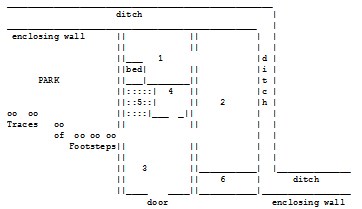
Here is the ground plan of the pavilion. It had a ground-floor which was reached by a few steps, and above it was an attic, with which we need not concern ourselves. The plan of the ground-floor only, sketched roughly, is what I here submit to the reader.
1. “The Yellow Room”, with its one window and its one door opening into the laboratory.
2. Laboratory, with its two large, barred windows and its doors, one serving for the vestibule, the other for “The Yellow Room”.
3. Vestibule, with its unbarred window and door opening into the park.
4. Lavatory.
5. Stairs leading to the attic.
6. Large and the only chimney in the pavilion, serving for the experiments of the laboratory.
The plan was drawn by Rouletabille, and I assured myself that there was not a line in it that was wanting to help to the solution of the problem then set before the police. With the lines of this plan and the description of its parts before them, my readers will know as much as Rouletabille knew when he entered the pavilion for the first time. With him they may now ask: How did the murderer escape from “The Yellow Room”? Before mounting the three steps leading up to the door of the pavilion, Rouletabille stopped and asked Monsieur Darzac point blank:
“What was the motive for the crime?”
“Speaking for myself, Monsieur, there can be no doubt on the matter,” said Mademoiselle Stangerson’s fiance, greatly distressed. “The nails of the fingers, the deep scratches on the chest and throat of Mademoiselle Stangerson show that the wretch who attacked her attempted to commit a frightful crime. The medical experts who examined these traces yesterday affirm that they were made by the same hand as that which left its red imprint on the wall; an enormous hand, Monsieur, much too large to go into my gloves,” he added with an indefinable smile.
“Could not that blood-stained hand,” I interrupted, “have been the hand of Mademoiselle Stangerson who, in the moment of falling, had pressed it against the wall, and, in slipping, enlarged the impression?”





